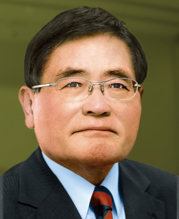The head of Japan Post and half of the board members will resign after the country’s new governmentblocked long-standing privatisation plans for the postal and financial services giant.
Anti-privatisation figures are expected to take charge instead.Japan Post president Yoshifumi Nishikawa said he will resign after the Japanese Minister ofPostal Affairs, Shizuka Kamei, publicly called for him to be replaced. The minister, who has longopposed the privatisation plans of the former government, also wants a further four or five of thenine board members to resign.
Nishikawa (71), who will submit his official resignation to the Executive Board tomorrow, isto be replaced by the former Vice Finance Minister Jiro Saito (73), currently the president ofTokyo Financial Exchange Inc., according to reports from Japan.
A former president of Sumitomo Mitsui Banking Corp., Nishikawa played a leading role inpushing the state-owned postal enterprise toward the private sector in line with the strategy drawnup by the former Prime Minister Junichiro Koizumi and his government. They had planned to startselling shares next year in the Japan Post holding company and the banking and insurancesubsidiaries.
But the new government is apparently concerned that if the banking and insurance businessesare split off from the overall postal group, then they might stop using post offices as saleschannels. About 80% of Japanese post office revenues come from sales commissions paid by the twofinancial operations.
Nishikawa’s departure marks a symbolic blow to the privatisation effort, and could furtherincrease concerns among some investors who are worried that the new government is moving away fromthe pro-market overhauls of the previous administration, according to the Wall Street Journal.
Referring to the new government’s policy shift over postal reform, Kamei noted last week thatJapan Post Holdings’ current executives “have pursued a direction that runs counter to our plansfor a review of postal policies”. Furthermore, he suggested that Japan Post Holdings might bebetter off without them, but that he would leave such decisions to Saito.
After the Democratic Party of Japan took over, Kamei called for Nishikawa’s resignationeventually forcing him to announce his intention to step down. “I decided to resign as I felt a gapbetween the privatisation review and what we have done and what we were trying to do,” Nishikawasaid at a news conference last week.
The appointment of Saito as the next president of Japan Post reflects the difficulty offinding another person from the private sector willing to take over Nishikawa’s position after hisbitter experience, according to the Nikkei Report. Apparently, Saito was chosen because of hisextensive connections with politicians and bureaucrats. He is a former political ally of IchiroOzawa, a senior official in the ruling Democratic Party of Japan, and shares the party’s scepticalview about postal privatisation efforts, according to the newspaper.
The new government has called for a review of the postal privatisation. Last Tuesday, thecabinet adopted new postal reform guidelines, and the government intends to submit a bill duringthe extraordinary Diet session at the end of this month which would freeze the planned sale ofJapan Post shares.
At a press conference on Monday this week, Kamei said the government will demand theresignation of four or five of the nine board members of Japan Post. According to multiple sources,Kamei will meet individually with Japan Post Deputy President Shokichi Takagi and outside directorsJiro Ushio, chairman of Ushio Inc., Uichiro Niwa, chairman of Itochu Corp., and Reiko Okutani,president of The R Co., on Tuesday to ask for their resignations. They have served on Japan Post’sboard since October 2007 and have promoted postal privatisation.
Kobo Inamura, a former senior official at the old posts ministry, is said to be among thepotential replacements. That ministry has now been renamed into the Ministry of Internal Affairsand Communications. The government hopes to set up the company’s new management team at anextraordinary shareholder meeting to be held on Wednesday.
Following its landslide electoral victory that ended decades of Liberal Democratic rule, theDemocratic Party of Japan sealed a coalition agreement with two smaller parties last month. Kameiis the leader of the People’s New Party which he founded in 2005 after leaving the former rulingLiberal Democratic Party. He held ministerial roles in LDP governments during the 1990s.












